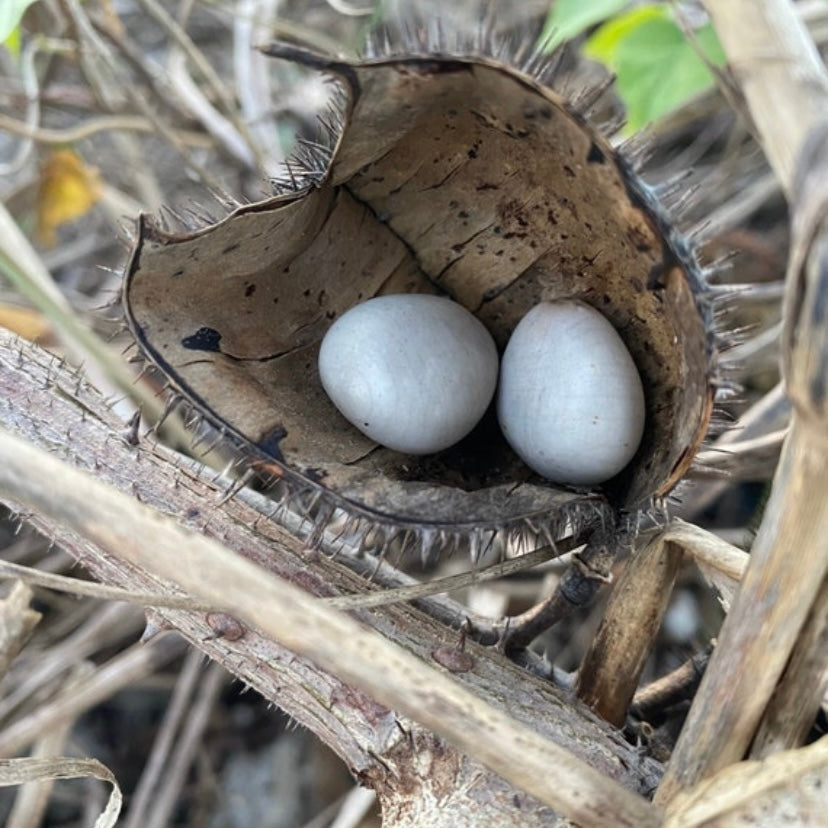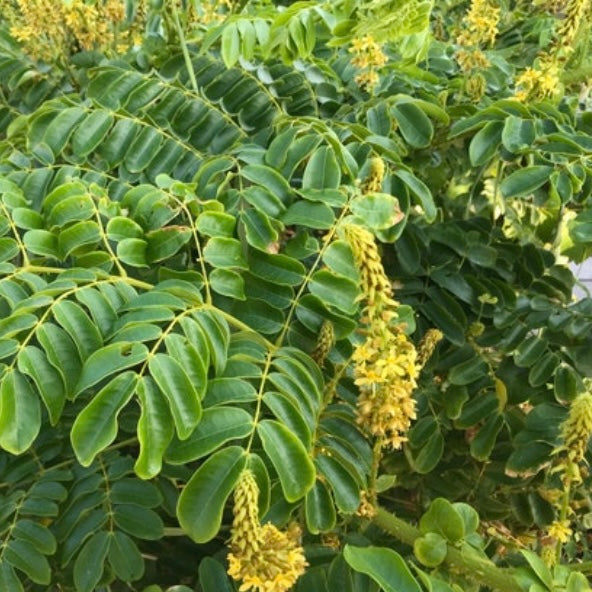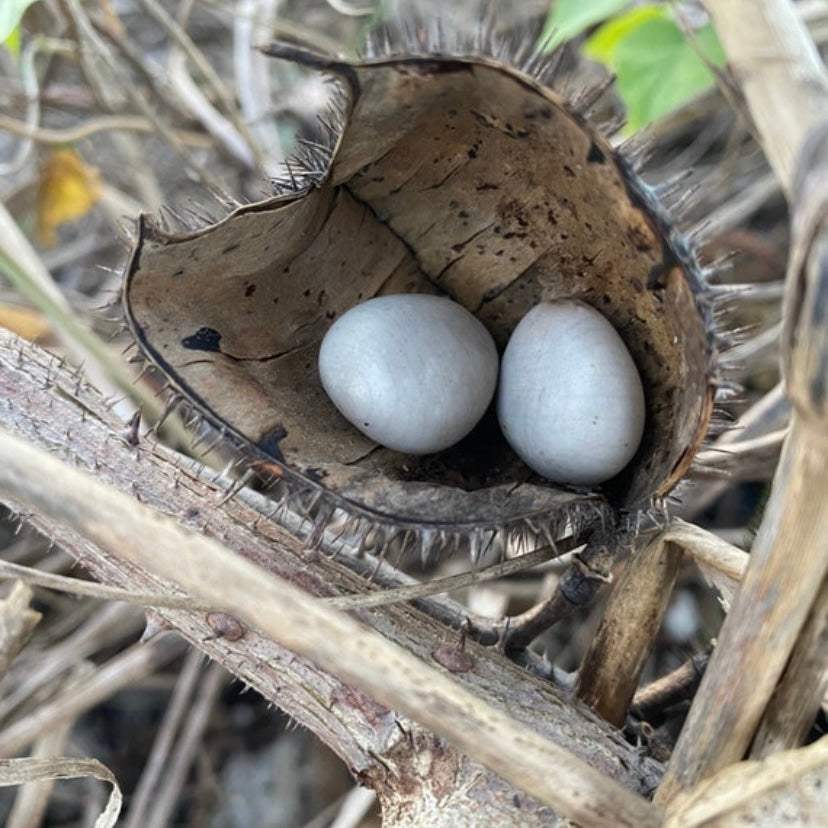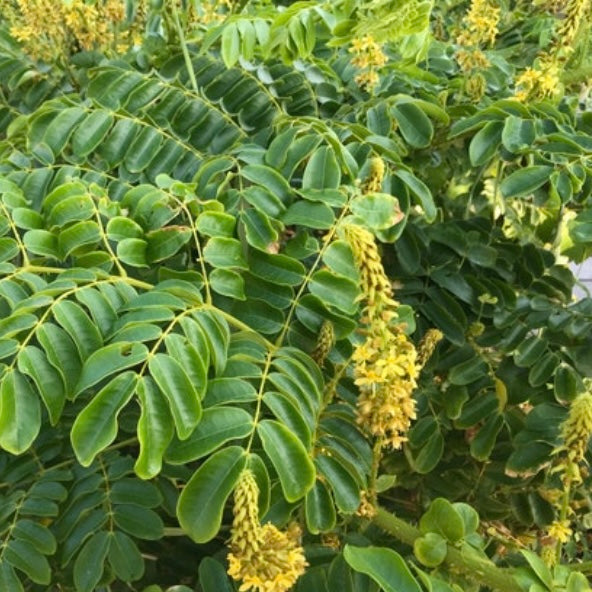Authentic Mancala Seeds - Grey Nicker Beans - Seapearls - Caesalpinia bonduc seeds - Mancala Stones
Authentic Mancala Seeds - Grey Nicker Beans - Seapearls - Caesalpinia bonduc seeds - Mancala Stones
Couldn't load pickup availability
Collected in Florida, these smooth seeds —(ranging from white or light grey to olive green in color. About the size of a nickel, 1/2" to 3/4").
These “Sea Pearls” have long been carried as good-luck charms, used in jewelry and crafts, and treasured by beachcombers for their natural beauty.
The Grey Nicker Bean (Caesalpinia bonduc) actually has a deep historic relationship with Mancala boards — one that stretches across Africa, Asia, and the Caribbean. Here’s the story:
Seeds as the Original Game Pieces
Before glass marbles or carved stones, natural seeds were used as the counters in ancient counting games — and among the most common were nicker nuts. Their perfect size, smoothness, and durability made them ideal for dropping into the small hollows of Mancala boards, which are carved from wood, stone, or sometimes even sand.
African & Indo-Pacific Origins
Mancala -type games originated thousands of years ago across Africa and the Indian Ocean region, spreading along trade routes to the Middle East, India, and the Caribbean.
The Gray Nicker vine grows natively in tropical Africa, Asia, and the islands of the Indian Ocean — precisely where Mancala was popular. So, as the vines spread, so did their seeds — and their role in the game.
In parts of West Africa, these seeds were specifically known as “nickar seeds” or “bonduc nuts,” and people would collect them for Oware (a traditional Mancala variant).
Across the Sea
When enslaved Africans were brought to the Caribbean and the Americas, they carried both the plants and the games. Over time, both took root in tropical regions like Jamaica, Haiti, and southern Florida — where Caesalpinia bonduc still grows wild today. The seeds continued to be used in handmade Mancala sets and other folk games, preserving a subtle but powerful link between the African diaspora and coastal ecology.
All images and text copyright Wild Island Trading Company. Please do not duplicate in whole or in part.
Share



They were just like I remembered them.




